
The Mythical
Lincoln
|
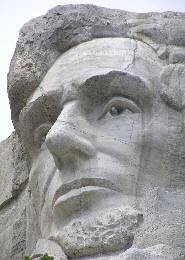
|
The Mythical Lincoln
Every February 12 Americans think they are celebrating
Lincoln’s birthday. But what they are really
celebrating is the birth of the Leviathan state that
Lincoln, more than anyone else, is responsible for
bringing about. No wonder federal politicos have made
his birth date a national holiday, engraved his face
is on Mount Rushmore, built a Venus-like statue of him
in Washington, D.C., and put his mugshot on the five
dollar bill.
More than 130 years of government propaganda has
hidden this fact from the American people by creating
a Mythical Lincoln that never existed.
|
| |
|
Lincoln Was Not An Abolitionist
Take,
for instance, the fact that everyone supposedly knows –
that Lincoln was an abolitionist. This would be a surprise
to the preeminent Lincoln scholar, Pulitzer prize-winning
Lincoln biographer David Donald, who in his 1961 book,
Lincoln Reconsidered, wrote that "Lincoln was not
an abolitionist." And he wasn’t. He was glad to accept on
behalf of the Republican Party any votes from
abolitionists, but real abolitionists despised him.
William Lloyd Garrison, the most prominent of all
abolitionists, concluded that Lincoln "had not a drop of
anti-slavery blood in his veins."
|
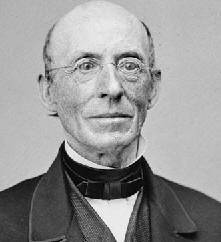 |
|
|
|
|
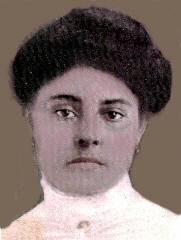
|
Lincoln Opposed Inter-Racial Marriage
Garrison knew Lincoln well. He knew that Lincoln stated
over and over again for his entire adult life that he did
not believe in social or political equality of the races,
he opposed inter-racial marriage, supported the Illinois
constitution’s prohibition of immigration of blacks into
the state, once defended in court a slaveowner seeking to
retrieve his runaway slaves but never defended a runaway,
and that he was a lifelong advocate of colonization – of
sending every last black person in the U.S. to Africa,
Haiti, or central America – anywhere but in the U.S.
|
| |
|
Lincoln Cared Less About Slaves
Garrison and other abolitionists were also keenly aware
that the January 1863 Emancipation Proclamation freed no
one since it specifically exempted all the areas that at
the time were occupied by federal armies. That is, all
areas where slaves could actually have been freed.
Historians have portrayed the Mythical Lincoln as a man
who brooded for decades over how he could someday free
the slaves. Nothing could be more absurd. According to
Roy Basler, the editor of Lincoln’s
Collected Works, Lincoln never even mentioned
slavery in a speech until 1854, and even then, says
Basler, he was not sincere.
|
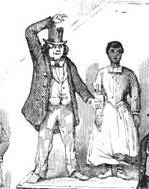 |
|
|
|
|
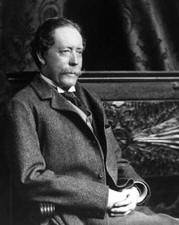
|
Help The Railroad Barons
When Lincoln first entered state politics in 1832 he
announced that he was doing so for three reasons: To help
enact the Whig Party agenda of protectionist tariffs,
corporate welfare subsidies for railroad and
canal-building corporations ("internal improvements"), and
a government monopolization of the nation’s money supply.
"My politics are short and sweet, like the old woman’s
dance," he declared: "I am in favor of a national bank . .
. the internal improvements system, and a high protective
tariff." He was a devoted mercantilist, and remained so
for his entire political life. He was single-mindedly
devoted to Henry Clay and his political agenda (mentioned
above), which Clay called "The American System."
|
| |
|
Lincoln Made A Joke Out Of The Declaration Of
Independence
Lincoln once announced that his career ambition was not
to free the slaves but to become "the DeWitt Clinton of
Illinois." DeWitt Clinton was the governor of New York
in the early nineteenth century who is credited with
having introduced the spoils system to America and
supervising the building of the Erie Canal (which became
defunct in a mere ten years because of the invention of
the railroad).
Moreover, Lincoln destroyed the most important principle
of the Declaration – the principle that governments
derive their just powers from the consent of the
governed. Southerners no longer consented to being
governed by Washington, D.C. in 1860, and Lincoln put an
end to that idea by having his armies slaughter 300,000
of them, including one out of every four white males
between 20 and 40. Standardizing for today’s population,
that would be the equivalent of around 3 million
American deaths, or roughly 60 times the number of
Americans who died in Vietnam.
|
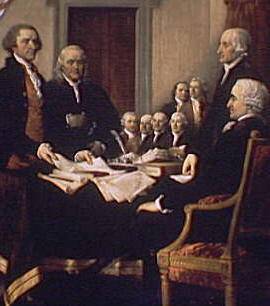 |
|
|
|
|
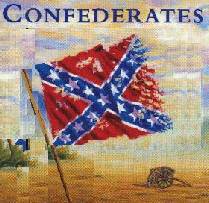
|
Confederates Fought For Freedom
As
H.L. Mencken said of the Gettysburg Address, in which
Lincoln absurdly claimed that Northern soldiers were
fighting for the cause of self determination ("that
government of the people . . . should not perish . . .":
"It is difficult to imagine anything more untrue. The
Union soldiers in the battle actually fought against self
determination; it was the Confederates who fought for the
right of their people to govern themselves. The
Confederates went into the battle free; they came out with
their freedom subject to the supervision of the rest of
the country."
|
| |
|
Pompous Dictator
Another Lincoln myth was that he "saved the Constitution."
But this claim is an outrage considering that Lincoln
acted like a dictator for the duration of his
administration and showed nothing but bitter contempt for
the Constitution. Even Lincoln’s idolaters, like historian
Clinton Rossiter, author of the book,
Constitutional Dictatorship, referred to him as a
"great dictator" who had an "amazing disregard for the
Constitution . . . that was considered by nobody as
legal."
|
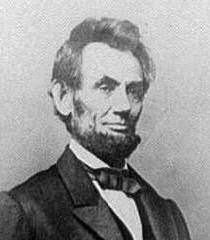 |
|
|
|
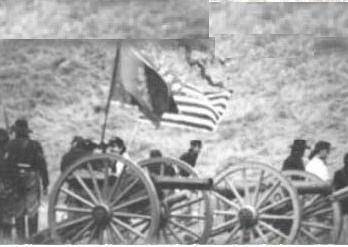 |
Lincoln
Doesn't Consent Congress
The
Dictator Lincoln invaded the South without the consent of
Congress, as called for in the Constitution; declared
martial law; blockaded Southern ports without a
declaration of war, as required by the Constitution;
illegally suspended the writ of habeas corpus; imprisoned
without trial thousands of Northern anti-war
protesters, including hundreds of newspaper editors and
owners; censored all newspaper and telegraph
communication; nationalized the railroads; created three
new states without the consent of the citizens of those
states in order to artificially inflate the Republican
Party’s electoral vote; ordered Federal troops to
interfere with Northern elections to assure Republican
Party victories; deported Ohio Congressman Clement L.
Vallandigham for opposing his domestic policies
(especially protectionist tariffs and income taxation) on
the floor of the House of Representatives; confiscated
private property, including firearms, in violation of the
Second Amendment; and effectively gutted the Tenth and
Ninth Amendments as well.
|
| |
|
The Great Humanitarian
As
Dean Sprague correctly pointed out in
Freedom Under Lincoln, all of these dictatorial
acts were bad enough, but their real, long-term effect
was to "lay the groundwork" for such unprecedented acts
of coercion as military conscription and income
taxation.
Hundreds of books have been written about Lincoln the
humanitarian, a soft and gentle man. But from the very
beginning of his administration he intentionally waged a
cruel and unbelievably bloody war on civilians as well
as soldiers. As early as 1861, Federal soldiers looted,
pillaged, raped and plundered their way through Virginia
and other Southern states, completely burning to the
ground the towns of Jackson and Meridian, Mississippi,
Randolph, Tennessee, and others
|
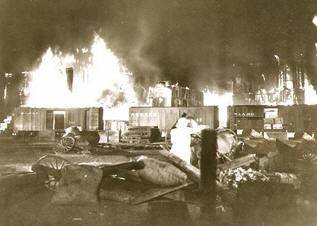 |
|
|
|
|
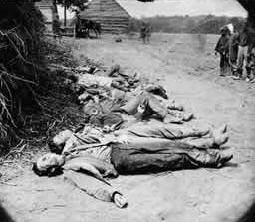
|
Lincoln's War Killed 50,000 Civilians
Historian Jeffrey Rogers Hummel estimates that some 50,000
Southern civilians were killed during the war, and this
number, even if it is exaggerated by a multiple of two,
most likely includes thousands of slaves. In his March to
the Sea, General William Tecumseh Sherman boasted of
having destroyed $100 million in private property and that
his "soldiers" carried home another $20 million worth.
|
|
|
|
Lincoln Reveled In Blood
In
his memoirs Sherman wrote that when he met with Lincoln
after his March to the Sea was completed, Lincoln was
eager to hear the stories of how thousands of Southern
civilians, mostly women, children, and old men, were
plundered, sometimes murdered, and rendered homeless.
Lincoln, according to Sherman, laughed almost
uncontrollably at the stories.
|
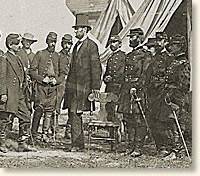 |
|
|
|
|
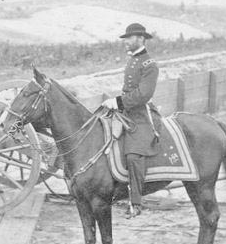 |
Lincoln Would Have Been Strung Up
Even Sherman biographer Lee Kennett, who writes very
favorably of the general, concluded that had the
Confederates won the war, they would have been
"justified in stringing up President Lincoln and the
entire Union high command for violation of the laws of
war, specifically for waging war against noncombatants."
|
| |
|
Henry Clay
Henry Clay’s American System had been vetoed as
unconstitutional by virtually every president beginning
with James Madison. But as soon as Lincoln took office,
with the Southern Democrats absent from Congress, it was
finally put into place, literally at gunpoint. In 1857
the average tariff rate was 15 percent, according to
Frank Taussig’s classic,
A Tariff History of the United States. The
Morrill Tariff more than tripled that rate to 47 percent
and it remained at that level for decades.
|
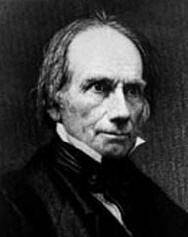 |
| |
|
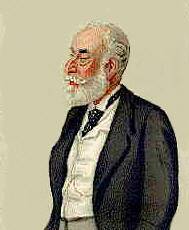 |
Nationalized Banking System
The National Currency Acts nationalized the banking
system, finally, and lavish subsidies to
railroad-building corporations generated the corruption
and scandals of the Grant administrations, just as
Southern statesmen had predicted for decades. Income
taxation was introduced for the first time, along with
an internal revenue bureaucracy that has never
diminished in size. All of these policies put a great
centralizing force into motion and were the genesis of
the centralized, despotic state that Americans labor
under today.
|
| |
|
Power To The Few
The biggest cost of the Lincoln’s war was the death of
federalism and states’ rights, the value of which was
expressed by John C. Calhoun several decades earlier when he
said: "The great conservative principle of our system is in
the people of the States, as parties to the Constitutional
compact, and our opponents that it is in the supreme court .
. . . Without a full practical recognition of the rights and
sovereignty of the States, our union and liberty must
perish." And they did.
|
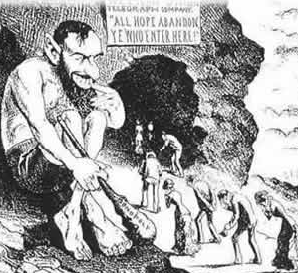 |
| |
|
|
February 12, 2002
Copyright 2002
LewRockwell.com
|
|
















